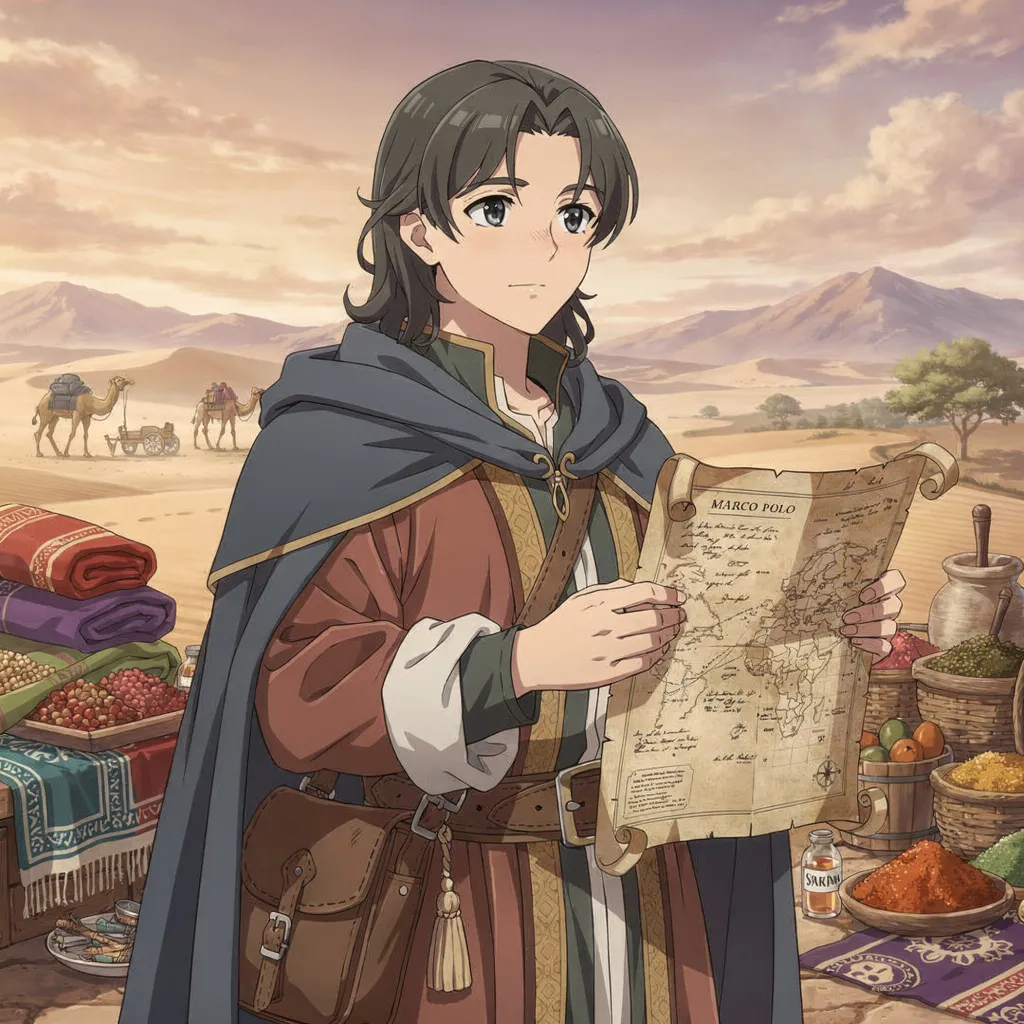
Marco Polo
1254-1324
Traveling across Asia and sharing exciting stories about his journeys along the Silk Road
Early Life
Marco Polo was born in 1254 in the busy city of Venice, Italy. Venice was famous for its ships, merchants, and trade, so Marco grew up hearing stories about faraway lands.
When Marco was young, his father Niccolò and uncle Maffeo were traders who traveled great distances. They often brought back exciting tales and treasures from places Marco had never seen.
A Journey Begins
When Marco was about 17 years old, he set off on an amazing journey with his father and uncle. They traveled east along the Silk Road, a long network of trade routes.
The trip took many years and covered deserts, mountains, and strange new cities. Marco saw animals, foods, and customs very different from those in Europe.
Life in China
One of the most important places Marco visited was China. He spent many years there during the rule of the emperor Kublai Khan.
Marco learned new languages and worked for the emperor in different jobs. He traveled around China and saw inventions like paper money and coal, which amazed people back in Europe.
Sharing His Stories
After about 24 years, Marco returned to Venice. Later, he was captured during a war and spent time in prison.
While in prison, Marco told his travel stories to a writer named Rustichello. These stories became a famous book often called *The Travels of Marco Polo*.
Why He Matters
Marco Polo’s book helped Europeans learn about Asia for the first time. His stories inspired curiosity and encouraged future explorers to travel and discover new places.
Even though some people wondered if all his stories were true, his book remained one of the most important travel stories ever written.
Legacy
Today, Marco Polo is remembered as one of the greatest explorers in history. His name is still used for games, books, and even space missions.
Marco Polo showed the world that learning about other cultures can be exciting and important. His adventures remind us to stay curious and brave when exploring the unknown.
🎉 Fun Facts
Marco Polo traveled for over 24 years before returning home.
He saw paper money for the first time in China.
His book was one of the most popular books in Europe for hundreds of years.
Some people thought his stories were too amazing to be true!